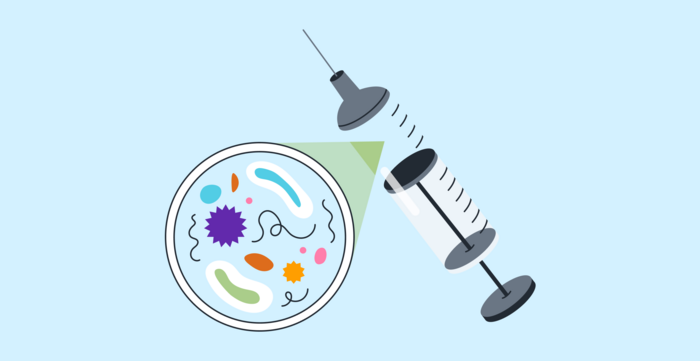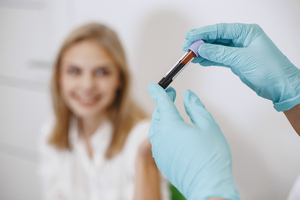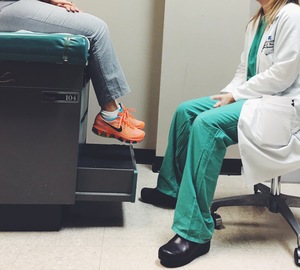Key points
- Flu vaccine updated for 2025–26 with new trivalent formula targeting A(H1N1), A(H3N2), and B/Victoria strains.
- Get vaccinated by October for best protection; flu shot and COVID-19 vaccines can be safely given together.
- COVID-19 vaccines has been updated for current variants; expected availability begins September 2025.
- RSV vaccine recommended for adults 75+ (50+ with higher-risk), infants, and pregnant people between 32–36 weeks.
- Vaccines widely available at pharmacies, clinics, and health departments; most are free with insurance.

This story has been updated for the 2025–2026 flu season.
We've now heard the expression “tripledemic” — driven by simultaneous surges of RSV, influenza, and new COVID-19 variants — which instances have tested our healthcare system. While respiratory activity is currently low, the CDC warns that the 2025–26 season could bring a similar wave if preventive steps aren’t taken.
This year’s flu vaccine has been updated with newly recommended strains, COVID-19 vaccines are expected by September, and RSV immunizations remain critical for the most vulnerable. Here’s what you need to know.
Influenza vs COVID-19 vs RSV
According to the CDC, both the flu and COVID-19 are highly contagious viral infections that affect the respiratory system. Symptoms of the flu and COVID-19 are similar but they are caused by two very different viruses. Both the flu and COVID-19 can be more severe than the common cold for people. In fact, the CDC notes that out of 9 million cases of influenza viruses in the 2021-2022 season, there were 4 million flu-related medical visits, 100,000 flu-related hospitalizations, and 5,000 flu-related deaths. The numbers are even more dismal for COVID-19, with over 2 million COVID-19-related hospitalizations and 244,000 COVID-19-related deaths in the United States.
Each of these viruses can be spread through exposure to a contaminated surface or respiratory droplets that are expelled into the air when an infected person coughs, sneezes, or talks, notes the CDC.
Influenza, COVID-19 and RSV Symptoms Compared
Symptoms of RSV, influenza, and COVID-19 can be similar. Our symptom tracker (based on information from the Mayo Clinic) can help guide you this season.
Symptom | Flu | COVID-19 | RSV | Cold |
|---|---|---|---|---|
Onset | Sudden | Gradual | Gradual | Gradual |
Fever | ✔ | ✔ | ✔ | Sometimes |
Cough | ✔ | ✔ | ✔ | ✔ |
Fatigue | ✔ | ✔ | ✔ | ✔ |
Body Aches/Chills | ✔ | ✔ | ✔ | Rare |
Headache | ✔ | ✔ | Sometimes | Rare |
Runny or Stuffy Nose | ✔ | ✔ | ✔ | ✔ |
Shortness of Breath | Sometimes | ✔ | ✔ | Rare |
Sore Throat | ✔ | ✔ | ✔ | ✔ |
Upset Stomach | Rare | ✔ | ✔ | ✔ |
When does flu season start?
Flu activity in the U.S. typically starts in October, peaks between December and February, and can last through May. Cold temperatures and indoor gatherings during winter drive transmission. CDC surveillance reports low activity as of June 2025, but historic trends suggest things will escalate by late fall.
What’s new for the 2025–26 flu season?
New vaccine strains
The FDA has approved a trivalent flu vaccine for 2025–26, including:
-
A/Victoria/4897/2022 (H1N1)pdm09-like (egg-based) or A/Wisconsin/67/2022 (H1N1)pdm09-like (cell/recombinant)
-
A/Croatia/Y10136RV/2023 (H3N2)-like (egg-based) or A/District of Columbia/27/2023 (H3N2)-like (cell/recombinant)
-
B/Austria/1359417/2021 (B/Victoria lineage)-like virus
Manufacturers have already begun shipping doses.
Pediatric mortality warning
The 2024–25 season ended with 256 pediatric flu deaths — the highest for any non-pandemic year since 2004. Most children who died were not fully vaccinated, underscoring the importance of timely immunization.
When should I get vaccinated?
The CDC recommends getting vaccinated by the end of October to ensure protection before respiratory viruses peak. This includes:
-
Flu shot (ages 6 months and older)
-
COVID-19 vaccine (expected Sept. 2025)
-
RSV immunization (see eligibility below)
Vaccines take about 2 weeks to become effective. Children under age 9 receiving the flu shot for the first time may need two doses spaced 4 weeks apart.
Flu Vaccine Overview
Types of flu vaccines
-
Standard-dose flu shot
-
High-dose flu shot (ages 65+)
-
Adjuvanted vaccine (ages 65+)
-
Egg-free (cell-based) vaccines (ages 18+ with egg allergy)
-
Recombinant vaccine (no candidate virus needed)
-
Nasal spray (LAIV) for eligible children and adults under 50
Who should get it?
Everyone 6 months and older without contraindications. Especially important for:
-
Adults 65+
-
Children under 2
-
Pregnant people
-
Immunocompromised individuals
-
People with chronic diseases
-
Residents of long-term care facilities
-
American Indians and Alaska Natives
Cost of flu shots
-
Usually free with insurance
-
Uninsured? Prices range from $0–$50, depending on provider, with discounts available.
COVID-19 vaccine for 2025–26
What’s new?
A reformulated COVID-19 vaccine targeting the most recent variants was approved by the FDA in August 2025. This year’s vaccine is available from Moderna (6 months+), Pfizer (5 years+), and Novavax (12 years+), but eligibility is now more limited than in prior years.
Who should get it?
The updated COVID-19 vaccine is recommended only for:
-
Adults age 65 and older
-
Children and adults with high-risk medical conditions, such as asthma, obesity, diabetes, or weakened immune systems
Healthy individuals under age 65—including children—are not broadly recommended to get the vaccine. However, they may still receive it after consultation with a physician. This guidance reflects new FDA policy and will be updated if the CDC issues additional recommendations.
Cost of COVID vaccines
COVID-19 vaccines remain free as of mid-2025 due to federal programs. Future availability and pricing may vary depending on insurance coverage and eligibility.
RSV immunization: Who should get it?
Eligibility
-
Infants under 8 months entering their first RSV season
-
Toddlers (8–19 months) with heart/lung disease or prematurity
-
Adults aged 50+ for individuals at high-risk
All Adults aged 75+
-
Pregnant people between 32–36 weeks gestation (to protect infants)
Cost of RSV vaccines
-
Covered as preventive care under most insurance plans (ACA, Medicaid, Medicare)
-
Uninsured? May cost $180–$295, per Kaiser Family Foundation
Is the RSV vaccine an annual shot?
No. RSV vaccines offer longer-lasting protection than flu or COVID-19 shots. Most adults won’t need yearly doses, but pregnant people and infants will continue to benefit from seasonal immunization.
Can I get all my fall vaccines at once?
Yes — the flu shot and COVID-19 vaccine can be administered together. For RSV immunization, early data suggest it’s safe to co-administer but may result in increased side effects (e.g., fever, soreness) or slightly reduced immune response. Ask your doctor if you qualify for and should combine doses.
Common Side Effects
Mild reactions typically go away in a few days:
-
Soreness or redness at injection site
-
Headache
-
Fatigue
-
Muscle aches
-
Mild fever or chills
-
Nausea
Rare but serious reactions may include:
-
Breathing difficulty
-
Hives or swelling
-
Facial numbness or tingling
Seek immediate medical attention if you experience serious symptoms.
Benefits of immunization
Per CDC research, fall vaccines help:
-
Prevent severe illness and hospitalizations
-
Protect infants, pregnant people, and seniors
-
Reduce the spread of respiratory viruses
-
Lower risk of flu-related complications, like heart issues or pneumonia
-
Lessen symptom severity even if you get sick
FAQs
What are the recommended vaccines for the 2024-2025 flu season?
Experts recommend getting the flu shot, COVID-19 booster, and the newly approved RSV immunization.
What are the symptoms of Flu, COVID-19, and RSV?
Symptoms can be similar and may include fever, body aches, fatigue, and cough. However, each virus may present slightly different symptoms.
When is the best time to get these vaccines?
It is recommended to get these vaccines by the end of October for optimal protection.
Can I get the flu shot and COVID-19 booster at the same time?
Yes, it is safe to receive the COVID-19 immunization or booster along with your flu shot.
Who should get the new RSV immunization?
The new RSV immunization is recommended for adults over 60, infants under 8 months, children between 8 and 19 months with certain conditions, and women who are between 32 and 36 weeks pregnant.
How effective are the flu shot and COVID-19 booster?
The flu shot can reduce flu illness by 40% and 60% during flu season. COVID-19 immunizations have saved tens of millions of lives globally in 2021 and continue to save lives today. However, the effectiveness of immunizations can be influenced by factors such as the age and health status of the person being immunized and how well the immunization is matched to the circulating strains of viruses.
How much do these immunizations cost?
The flu shot is usually free for those with health insurance plans. The COVID-19 boosters are currently covered by the United States Government. The cost of the new RSV immunization depends on your health insurance coverage, but it will be free for many people because it falls under preventive care covered under the ACA.
Can I get my fall immunizations at the same time?
Yes, it is safe to receive the COVID-19 immunization or booster along with your flu shot. However, there is limited understanding of the effects of getting the RSV immunization at the same time as other immunizations. The CDC notes that getting your RSV immunization at the same time as your flu shot may cause an increase in common side effects.









